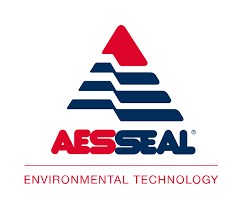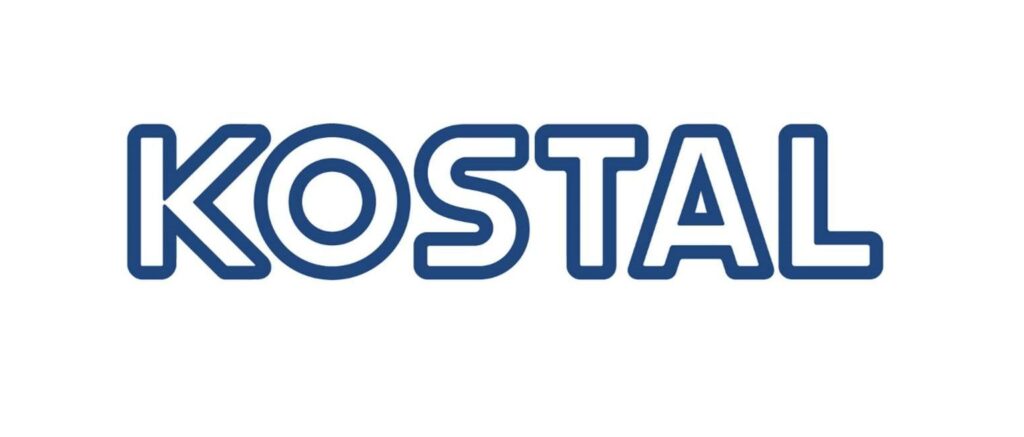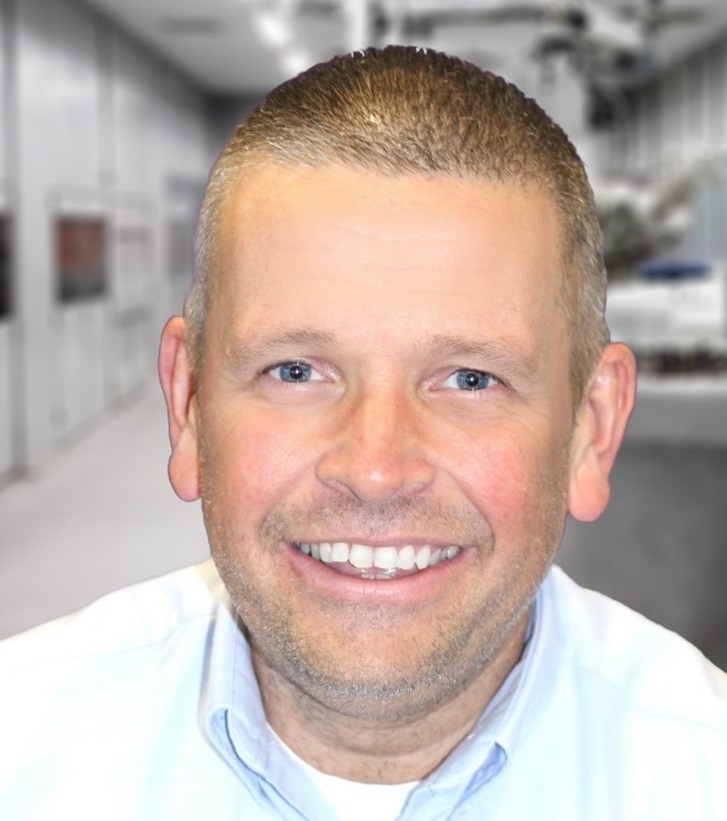Rise to Leadership - Richard Cook's Story: Career Journey
As we continue our exclusive three-part leadership series with Richard Cook, Managing Director at Castings Technology International, we now explore his remarkable career journey from being an apprentice to a senior leader and the wisdom he has gained along the way…
What did you do after you left school, and where did it take your career?
I was always the youngest in school (31st August birthday), which was a challenge in itself, but failing my maths O-Level was more of a concern and my headmaster (very diplomatically) explained that continuing to study at the next level (then AO) without passing the previous one was not practical, so I left school earlier than originally planned.
Fortunately, I was accepted into the Leicester Engineering Training Group as an Apprentice with the help of Leicester City Council. They sponsored many young people as part of a cohort who were not ‘employed’ as such and with no guarantee of a job at the end of it. They promised a two year apprenticeship, with an optional third year. However, the funding for the third year never materialised, so I needed to find a job after 24 months.
My father was frequently travelling, so my mother and I were very close and she helped me contact local engineering businesses. Luckily, I found out that there was an opening for an Apprentice at a business in my local village, due to an ex-school friend being sacked for ‘misbehaving’ the week before!
Glenborough Engineering
I joined Glenborough Engineering, a small and well-managed private business in our village, while attending college on ‘day release’ which was without pay. I funded my own attainment of both Ordinary and Higher National Certificates in Mechanical and Production Engineering. At Glenborough I was responsible for a range of tasks, from making the tea and sweeping floors to maintenance jobs, including the unpleasant task of cleaning out machine tool coolant sumps – which had a strong farm-like odour! Occasionally, I operated high-volume production machines like a capstans or multi-head drilling machines. The work was monotonous and tiring, but I persisted. I started with basic machining and gradually moved on to more complex tasks with the help of my colleagues, who supported me in becoming a reasonably skilled Millwright. Eventually, I became a competent machinist in various areas, including milling, turning, grinding, and to a lesser extent welding. Sadly, the company closed its doors for the final time in 2017.
Miles Platts
I had a good friend, Mark Doherty who worked at Miles Platts, a coil-former manufacturer and tool-making company in Leicester. He managed to get me an interview there in 1987, and, despite sporting a black eye from an ‘altercation’ the previous evening, I landed the job and transitioned from being a machinist to a toolmaker! It was a daunting move at the time, but the production manager, Geoff Russell, was very supportive and helped me succeed. I worked long hours, often five 12-hour shifts and two six-hour weekend shifts every week, to be able to afford my first mortgage. It’s great to see that Miles Platts is still thriving today; having relocated to a more modern facility outside of the city centre.
Northbridge Fasteners (now Howmet Fastening Systems)
 Three years later, I left Miles Platts and moved to Wigston to work as a Production Engineer at Northbridge Fasteners (now Howmet Fastening Systems). It was tough to transition into an office environment, but I learned quickly. I was promoted to Chief Production Engineer and then Engineering Manager when my boss took a secondment in the US. Later, I became their Manufacturing Manager, working for a very inspirational leader, Manesh Pandya. It was a big challenge to manage a unionised shop floor with 140 skilled workers and to be involved in the implementation of a company-wide lean manufacturing programme in conjunction with US & Japanese consultants. Nevertheless, I learned a lot and helped make the business a success. I was with Northbridge Fasteners for eight years, and it remains one of the best places I have ever worked, with a variety of specialist processes and a wide range of complex, mission-critical components.
Three years later, I left Miles Platts and moved to Wigston to work as a Production Engineer at Northbridge Fasteners (now Howmet Fastening Systems). It was tough to transition into an office environment, but I learned quickly. I was promoted to Chief Production Engineer and then Engineering Manager when my boss took a secondment in the US. Later, I became their Manufacturing Manager, working for a very inspirational leader, Manesh Pandya. It was a big challenge to manage a unionised shop floor with 140 skilled workers and to be involved in the implementation of a company-wide lean manufacturing programme in conjunction with US & Japanese consultants. Nevertheless, I learned a lot and helped make the business a success. I was with Northbridge Fasteners for eight years, and it remains one of the best places I have ever worked, with a variety of specialist processes and a wide range of complex, mission-critical components.
Sermatech UK Ltd
During the 1990s, I travelled extensively in the Western US, where much of the aircraft fastener industry is based. Eventually, I joined the UK operations of a US-based company, Sermatech UK Ltd (acquired by Praxair in 2009), which was at that time a subsidiary of Teleflex. I started as an Operations Director in a new sector for me: high-integrity coatings. This was my first foray into a process-based operation involving various innovative technologies, including aluminium ceramic water-based coatings, pack aluminising, plasma spray, HVOF spray, and abradable deposition. Although I was still primarily involved with aerospace, this represented my first move away from my ‘comfort zone’…machining!
Our largest customer was Sermatech Repair Services, which was co-located on the site in Codnor, Derbyshire, which occasionally led to tensions regarding production priorities! Our next largest customer was European Gas Turbines (EGT) in Lincoln (now Siemens Industrial Turbomachinery). While the technology and processes were fascinating, the toughest aspect was the unusual way in which they ran their overseas facilities and the level of (sometimes less than helpful!) interference from the US.
Following my overseeing of the successful specification, build, and commissioning of a new plant on Whisby Road in Lincoln to directly support EGT, I got a sense that I was probably surplus to their requirements and it was time to make another move!
Sandiacre Packaging Machinery
In 1998, I became Production Director at Sandiacre Packaging Machinery (now BW Flexible Systems) in Beeston, Nottingham. This was another step out of my comfort zone. The company had an excellent machine shop, which was familiar territory, but there were complimentary areas such as fabrication, electrical assembly, control panel assembly, software development, and field service that were less so. Nonetheless, it was a great move and I introduced the company to lean manufacturing, transforming it from what was a very traditional operation. I had three successful years there, but the company was later merged with a horizontal flow-wrapping business without sufficient planning, and I wasn’t happy with the new organisational structure, particularly given that two fellow architects of the company’s success (David Owen & Jamie Thums MBE) had already left. However, I am a strong believer in delivering your best for the company until another opportunity arises and in 2001, I ended up with two parallel job offers, which was a difficult choice to make. One offer was to work again with Manesh Pandya, who had left Linread Northbridge to buy a business in Burnley, Lancashire, but I needed to buy-in to the business (and find the requisite £20,000 of capital to do so). The other offer was to work directly for Chris Rea at AESSEAL in Rotherham, a highly successful, innovative, and growth-oriented business. Ultimately, I decided to work for AESSEAL, but it was a challenging decision to make at the time.
AESSEAL
AESSEAL brought me to Rotherham, so I continued my migration northwards from my hometown of Leicester, via Derbyshire, to South Yorkshire. AESSEAL was a fascinating business that grew significantly during my 11-year tenure. When I joined, it was turning over approximately £30 million, when I left that had jumped to £130 million and today, it’s probably close to a quarter of a billion turnover! It was a 1200-person organisation when I first started, and I can’t remember how many people worked there when I left. However, I had the privilege of working alongside many great people, with great processes, significant investment, and world class equipment and infrastructure.
AESSEAL took me straight back to my machining roots, with two facilities in Rotherham and one in Bradford. When I first started, I struggled a little with confidence, but I managed to identify where I could add the most value to this already exceptionally efficient business. These 11 years were probably some of the most productive of my career. I grew and developed more with AESSEAL than I had with any other business. When the time came to leave AESSEAL, it was difficult, but I spent my six-month notice period diligently creating a huge swathe of handover documentation for my replacement.
Towards the end of my notice period, an opportunity arose to work in the automotive sector and, as my boss of some years ago was ex-Lucas Engineering & Systems (a well-known automotive consultancy), I had formed a view that the automotive sector was ‘where it was at’. I always wanted to gain some experience there, and this was my chance.
Kostal
I joined Kostal, which was located in a small village called Goldthorpe in the middle of the triangle formed by the towns of Doncaster, Rotherham and Barnsley. It was an interesting, privately-owned business with a Group turnover of around 13 billion Euros at the time and had factories all over the world, primarily headquartered in Lüdenscheid, Germany. The facility in Goldthorpe was the largest employer in the area with a workforce of circa 700 people. Having worked extensively in Germany with AESSEAL, I expected to fit in easily. However, Kostal was much more structured (and more typically Germanic) in their approach than my previous workplace, and the pace in automotive is exceptionally fast. Due to various reasons specific to the sector, I quickly realised that it would be difficult to make an impact there. Furthermore, the days were extremely long, and I was lucky if my last call with an automotive OEM finished before 11:30 pm, and it wouldn’t be much after 5:00 am before I received calls from another. After a relatively short period, it became untenable, and I said to my Managing Director, who I knew well before joining, “It’s not working out, I can see it, you can see it” (and I am not the type of person who gives up easily!). Again, I worked my full notice, including the entire Christmas period, to mitigate issues with a particularly challenging production line. Mr. Kostal kindly rang me before I left and said he was sorry that I was leaving. He offered to find me another role elsewhere in the business, which was appreciated, but it just wasn’t the place for me.
Castings Technology
![]() After resigning from my previous role, I informed people in my network that I was available for new opportunities. Knowing that I had worked with the Advanced Manufacturing Research Centre (AMRC) before, I contacted Keith Ridgway, who was the Executive Dean at the time. He informed me that AMRC had recently acquired a foundry operation in Catcliffe, Rotherham, called Castings Technology International (CTI), and asked if I would be interested in a position there (I jokingly thought that I already knew everything there was to know about casting after studying it in a module at HNC level!) Nevertheless, I accepted the position of Senior Operations Manager and was promoted to General Manager after just a few months.
After resigning from my previous role, I informed people in my network that I was available for new opportunities. Knowing that I had worked with the Advanced Manufacturing Research Centre (AMRC) before, I contacted Keith Ridgway, who was the Executive Dean at the time. He informed me that AMRC had recently acquired a foundry operation in Catcliffe, Rotherham, called Castings Technology International (CTI), and asked if I would be interested in a position there (I jokingly thought that I already knew everything there was to know about casting after studying it in a module at HNC level!) Nevertheless, I accepted the position of Senior Operations Manager and was promoted to General Manager after just a few months.
For 7 1/2 years, I was employed by the highly-regarded Russell Group University of Sheffield, which was a first for me since I had never worked in the public sector before. Despite our best efforts, we were losing money in a difficult market sector. Eventually, the University decided to close CTI. However, the management team believed that this was a mistake due to our “sovereign capability”, the programmes we were involved in, the strong forward order book and equipment that had been procured several years earlier finally being commissioned. We proposed a Management Buy-Out, which was not favourable to CTI, but we have thus far managed to overcome significant challenges around equipment uptime and remain in business with an even stronger order book.
I currently own 75% of CTI, and the remaining 25% is held by my Chairman and colleague, Kevin Parkin, who was instrumental in helping us secure the MBO in very difficult circumstances. We have a team of over 80 engineers and support staff who continue to make a significant contribution to our ongoing business activity. We are cautiously optimistic about the future, particularly because we are supporting several key clients, including the Joint Strike Fighter Programme (F-35B variant), which is a part of the largest single-project spend in US Department of Defence history.
In the last instalment, we’ll explore his best achievements and biggest challenges, as well as the projects he’s working on and his predictions for the engineering/manufacturing sector in the next five years.
Richard Cook, Managing Director at Castings Technology
Richard is responsible for Castings Technology’s global business activities and
following on from the successful MBO with Kevin Parkin, is the Managing Director
and majority shareholder at Castings Technology. Connect with Richard on LinkedIn.











